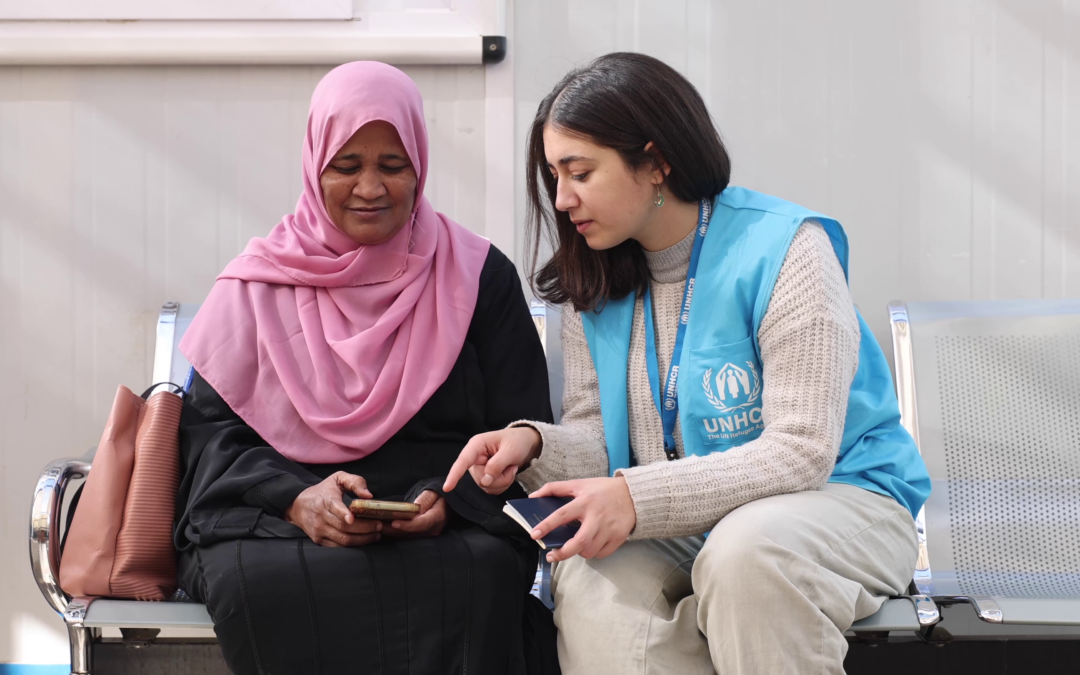

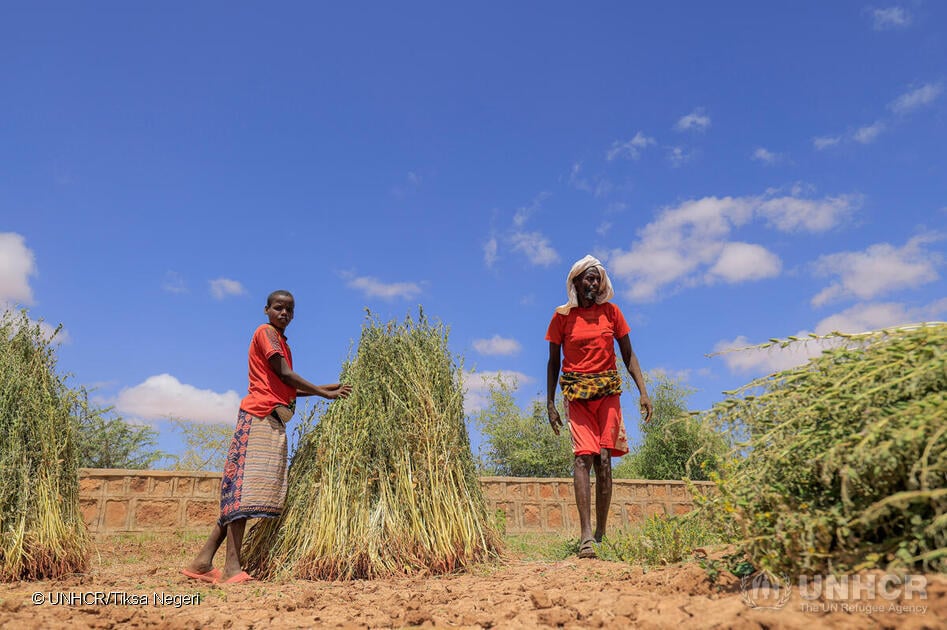
East, Horn, and Great Lakes of Africa: Leveraging Data for Sustainable Refugee Responses
By Jed Fix, Masud Rahman, Dr. Atinkut Mezgebu Wubneh, and Alessandro Nava Noor Ibrahim Isak, 67 harvests Sesame with his son, Hussein Noor Ibrahim, 15, at Kobe agricultural farm for the refugees and the host community in Kobe, Somali region of Ethiopia. ©UNHCR/Tiksa...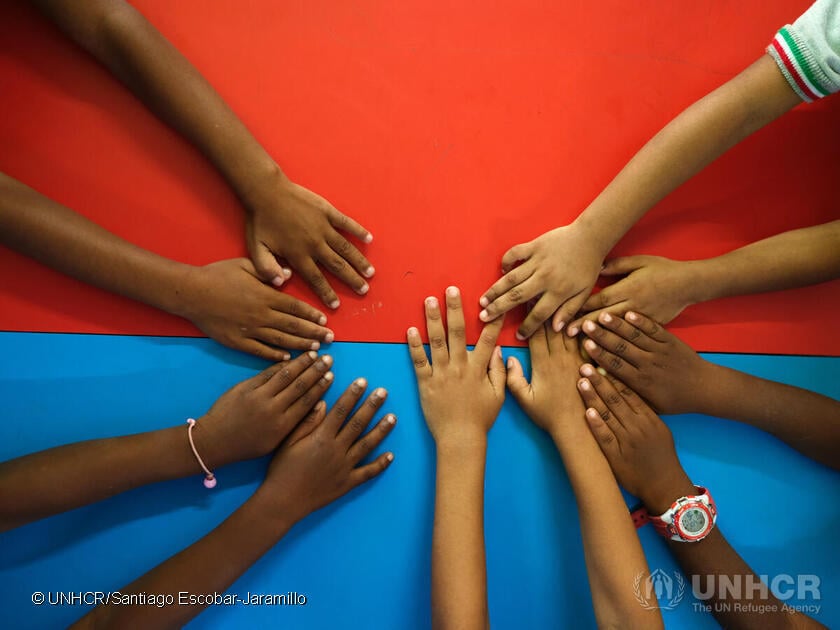
UNHCR and OECD Datathon: Harnessing Data for Forcibly Displaced and Stateless Children
By Tarek Abou Chabake and Jean-Christophe Dumont Hands of children at Tierra Bomba School, an ethno-educational institution with 1,188 students. ©UNHCR/Santiago Escobar-Jaramillo Data plays a crucial role in humanitarian efforts, providing timely and accurate insights...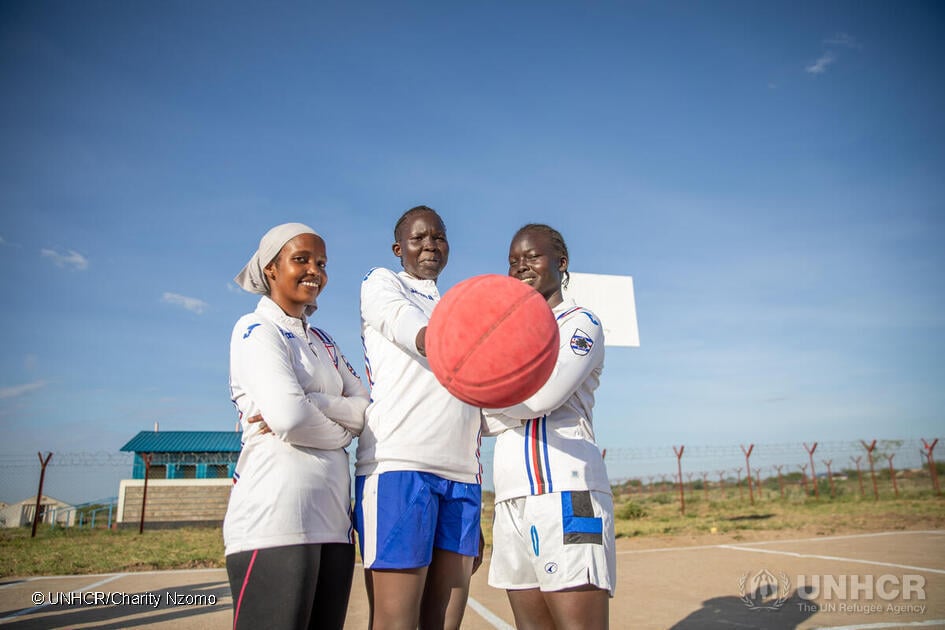
Education as a catalyst for refugee and host community integration in Kenya
Aspirations vs. reality: The benefits of prioritizing education are immense. All children and youth deserve a quality education that matches their aspirations and paves the way for a good future.

Investing in refugees’ self-reliance: a more cost-effective and sustainable response
A new UNHCR-World Bank report highlights the “triple win” created when refugees are allowed to work: increased self-reliance, reduced dependency on aid, and economically strengthened host communities.
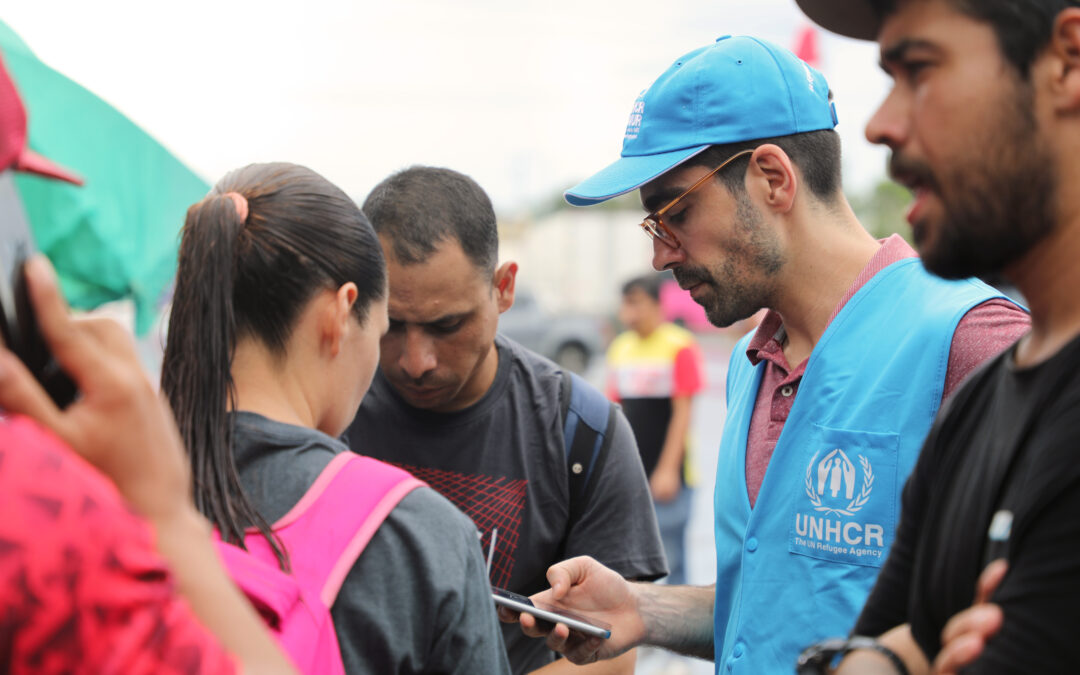
The future is data (and it’s here already)
At the end of September 2024, world leaders are coming together in New York City to convene a variety of high-level events. Between 22-23 September, the Summit of the Future will take place, which has been described as a once-in-a-generation opportunity to mend eroded trust and demonstrate that international cooperation can effectively tackle emerging threats as well as opportunities.

Ensuring everyone counts: working together to include stateless and displaced persons in civil registration systems
In today’s interconnected world, the ability to prove one’s identity isn’t just a legal formality—it’s a fundamental human right that unlocks access to a wide range of services and opportunities. For many, having a birth certificate or an ID card is something easily taken for granted. But for migrants, refugees, and stateless people, legal recognition is crucial for securing rights and accessing essential services. This is where Civil Registration and Vital Statistics (CRVS) systems play a pivotal role, ensuring that every person is recognized under the law, regardless of their circumstances.

The private sector increases work-based integration for Venezuelan refugees and migrants in Colombia
Effectively integrating refugees and migrants in labour markets boosts productivity, increases the availability of skilled workers, and drives economic growth.
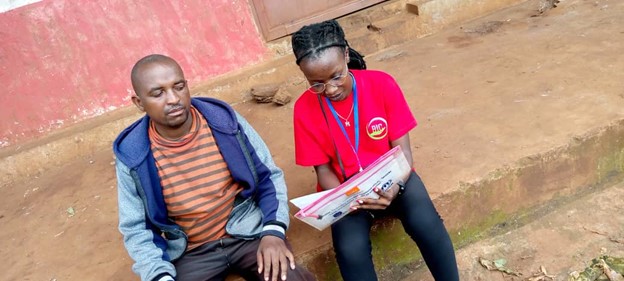
Inclusion statistique des réfugiés et des rapatriés au Burundi : une approche localisée pour collecter des données de bonne qualité
Par Ilgi Bozdag et Felix Ndama Wa Ndama L’UNHCR a mené sa deuxième enquête de suivi des résultats au Burundi en 2023 avec les rapatrié.e.s près de la frontière tanzanienne, dans la commune de Muyinga. ©GNK/Diane Kaneza Le Burundi, pays...
Statistical Inclusion of Refugees and Refugee Returnees in Burundi: A Localized Approach to Collect Good Quality Data
The East African country of Burundi currently hosts 300,000 forcibly displaced and stateless people. This includes 85,000 refugees and asylum-seekers, 25,000 internally displaced persons, 800 people at risk of statelessness. At the same time, UNHCR repatriated over 185,000 Burundian refugee returnees since September 2017. The UN Refugee Agency’s involvement in the country focuses particularly on providing assistance and protection for these populations as well as promoting their inclusion in national systems, enhancing their self-sufficiency, and supporting durable solutions, such as integration or resettlement.
